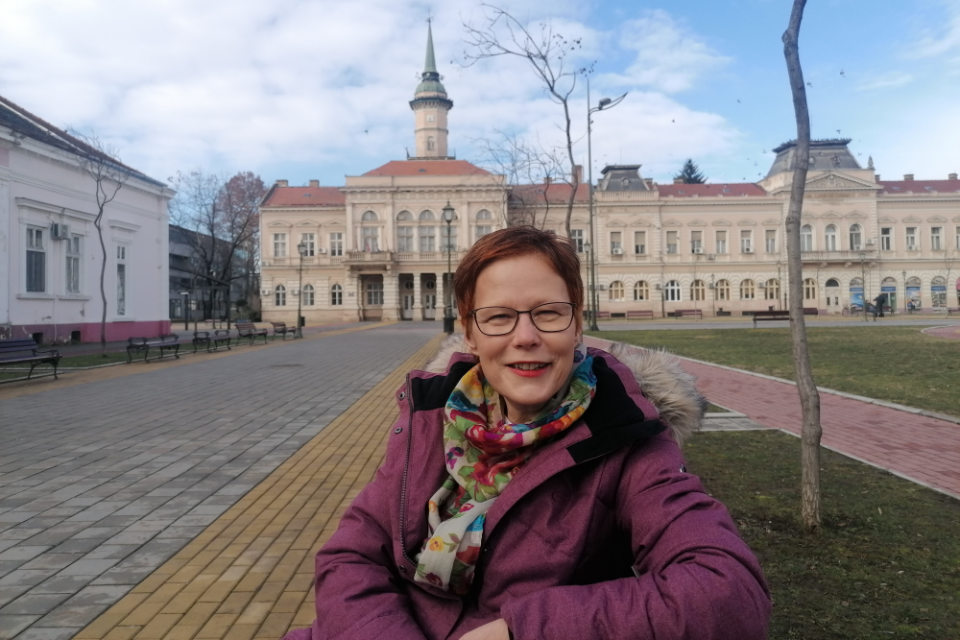In the words of Jelena Brankov-Čerevicki: “In our region, we saw how success begets success”
Jelena Brankov-Čerevicki is the Head of Human Resources and Coordinator for Gender Equality of the Municipality of Bečej, a multi-ethnic community in northern Serbia. Under UN Women’s EU-funded “Support for Priority Actions for Gender Equality in Serbia” project, the Municipality received a small grant to help enhance the position of rural women. The grant provided the seed money needed to jump-start women’s empowerment processes, forge collaborative partnerships, and generate both State and donor investments worth five times the initial amount. Brankov-Čerevicki is the woman behind this successful endeavour.Date:

![]()
Rural women in Bečej live largely in isolation. The heavy burden of domestic and farm work that leaves them with little or no free time is compounded by severe poverty and lack of mobility, hindering their ability to communicate with other ethnic groups. The lack of public services infrastructure also contributes to this. To address these problems, we started by asking key questions: What do you need? When and where can you meet us?
The expressed needs of women in our community were basic but important and thankfully manageable. They needed information about, and access to, public services, basic skills to help them save or earn a small wage, and opportunities to connect with other women in their villages and build support networks, or just take a break from their daily routines. The grant provided by UN Women in 2019 enabled us to begin to address this humble wish-list.
We initiated a collaboration with local civil society organizations, public services, and cultural organizations. Courses in sewing, computers, Serbian and Hungarian languages were held by local CSOs in Bečej and local villages. Health-care and gerontology centres, as well as social services all began holding info sessions and workshops in local villages. Theatrical plays and photo exhibitions were organized and hosted in communities that have long forgotten about such content. All activities were extremely popular and pointed to a deep void of information, content and support, as well as a dire need for them.
For the first time, the municipality implemented activities envisaged in the local gender equality action plan. As a result, Bečej’s rural women have become more informed, gained skills and in some cases employment. They connected with each other, expanded their horizons and generally were empowered to engage in cooperative work, promote women’s rights, and initiate local humanitarian activities benefiting their community.
The success generated by this 6-month-long project attracted the attention of other key actors. For its activities in 2019, Bečej Municipality received an award for the best municipal/city self-government in the area of equality and anti-discrimination from the Ministry of Public Administration and Local Self-Government of the Republic of Serbia, which also meant additional State funding. New international donors also came forward. Suddenly, our budget grew almost five-fold, which meant that we could not only continue the activities we had initiated with the help of UN Women, but build on them! And we did.
In 2020, in spite of the COVID-19 pandemic, new activities were introduced and previous ones were expanded, while the communities’ interest only grew.
The pandemic has shifted the focus elsewhere and this will make it more difficult to keep ‘our eye on the ball’ in 2021. But some of these women have already ‘woken up’. They created their own support networks, and communication channels between them. Local institutions and civil society actors have already been established. With that, the groundwork has been laid and we can only move forward.”